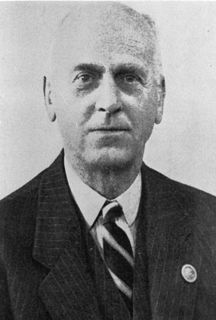| Denis Fenn Rixson | |
|---|---|
| Born | 12 December 1918 Wandsworth, London, England |
| Died | 10 December 1994 (aged 73) Chichester, West Sussex, England |
| Allegiance | |
| Service/ | |
| Years of service | 1937–1971 |
| Rank | Air Commodore |
| Battles/wars | World War II |
| Awards | Commander of the Royal Victorian Order Officer of the Order of the British Empire Distinguished Flying Cross Air Force Cross Mentioned in Despatches |
Air Commodore Denis Fenn Rixson CVO, OBE, DFC, AFC (12 December 1918 – 10 December 1994) was a British pilot during World War II and a senior Royal Air Force officer in the post-war years and a Commandant Royal Observer Corps. [1]

The Distinguished Flying Cross (DFC) is the third-level military decoration awarded to officers, and since 1993 to other ranks, of the United Kingdom's Royal Air Force and other services, and formerly to officers of other Commonwealth countries, for "an act or acts of valour, courage or devotion to duty whilst flying in active operations against the enemy".

The Air Force Cross (AFC) is a military decoration awarded to officers, and since 1993 other ranks, of the United Kingdom Armed Forces, and formerly also to officers of the other Commonwealth countries. It is granted for "an act or acts of exemplary gallantry while flying, though not in active operations against the enemy". A bar is added to the ribbon for holders who are awarded a further AFC.

The United Kingdom, officially the United Kingdom of Great Britain and Northern Ireland but more commonly known as the UK or Britain, is a sovereign country lying off the north-western coast of the European mainland. The United Kingdom includes the island of Great Britain, the north-eastern part of the island of Ireland and many smaller islands. Northern Ireland is the only part of the United Kingdom that shares a land border with another sovereign state—the Republic of Ireland. Apart from this land border, the United Kingdom is surrounded by the Atlantic Ocean, with the North Sea to the east, the English Channel to the south and the Celtic Sea to the south-west, giving it the 12th-longest coastline in the world. The Irish Sea lies between Great Britain and Ireland. With an area of 242,500 square kilometres (93,600 sq mi), the United Kingdom is the 78th-largest sovereign state in the world. It is also the 22nd-most populous country, with an estimated 66.0 million inhabitants in 2017.
During World War II, he was the Officer Commanding No. 113 Squadron. [2]

World War II, also known as the Second World War, was a global war that lasted from 1939 to 1945. The vast majority of the world's countries—including all the great powers—eventually formed two opposing military alliances: the Allies and the Axis. A state of total war emerged, directly involving more than 100 million people from over 30 countries. The major participants threw their entire economic, industrial, and scientific capabilities behind the war effort, blurring the distinction between civilian and military resources. World War II was the deadliest conflict in human history, marked by 50 to 85 million fatalities, most of whom were civilians in the Soviet Union and China. It included massacres, the genocide of the Holocaust, strategic bombing, premeditated death from starvation and disease, and the only use of nuclear weapons in war.
No. 113 Squadron began service in 1917 with the Egyptian Expeditionary Force commanded by General Edmund Allenby. Initially, the squadron was a unit of the Royal Flying Corps, serving during the Sinai and Palestine Campaign and as a reconnaissance, army cooperation, bomber, fighter, transport and missile operation squadron during its existence.



